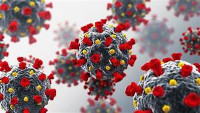Leafy Vegetable Farmers and their Profit Efficiency during COVID-19 Lockdown in Oyo State http://www.doi.org/10.26538/tjpps/v2i4.2
Main Article Content
Abstract
Corona Virus Disease (COVID-19) pandemic and the associated lockdown is a global health emergency with far-reaching consequences on the economy, basic services, and livelihood of the poor and vulnerable including leafy vegetable farmers. This research focused on drivers of profits among leafy vegetable farmers during COVID-19 lockdown in Egbeda Local Government Area Oyo State. Multistage sampling techniques were employed to choose120 leafy vegetable farmers. Structured questionnaire was designed to gather data and was analyze using with the aid of descriptive statistics, Gross Margin analysis and Ordinary Least Square regression. Results showed that the mean age of leafy vegetable farmers was 51 years. Majority (83.3%) of the leafy vegetable farmers were married, most (87.6%) were educatedwith a mean farming experience of 19 years. The Gross Margin result indicated of the farmers involved in leafy vegetable production was N573,537.00 which implies that the enterprise is profitable. The determinants of profit among leafy vegetable farmers during COVID-19 lockdown in Egbeda L. G. were educational level (5%), farm size (1%), inputs costs (1%) and cooperative membership (1%). It is therefore, recommended that more effort should be put in place by policy makers and agricultural stakeholders inform of cash assistance, inputs and programs that will help boost farmers production, thereby enhancing profits at any given period of time.
Metrics
Article Details

This work is licensed under a Creative Commons Attribution-NonCommercial 4.0 International License.
References
Balogun C E. Mitigating the Impact of COVID-19 on Rural Farm Families in Nigeria through Innovative Information Transfer. Inter. J. of Dev. Strat. in Hum., Man. and Soc. Sci., 2020; 10(2):1-13.
Nigerian Communications Commission (NCC). Statistics and reports,2020
Sabo E. and Zira YD. “Awareness and Effectiveness of Vegetable Technology Information Packages by Vegetable Farmers in Adamawa State, Nigeria”. African J. of Agric. Res.2009; 4 (2):065-070.
Mofeke ALE, Ahmada A, Mudiane O.J. “Relationship between yield and seasonal water use for tomatoes, onions, and potatoes grown under fadama irrigation”. Asset Series A. 2013; 3:35-46.
Osuji EE, N.C. Ehirim, MAY Rahji TT, Awoyemi K.K. Salman, M.A.C.A Odii, S.C. Onyemuwa, Ibeagwa OBC, Chikeie, Okwara MO. Farming Risks and Security Challenges in Vegetable Production in Orlu, Imo State. Asian Dev. Policy Review. 2017; Pp: 37-42
Ogunji J, Iheanacho S. Ogunji CV, Olaolu M, Oleforuh-Okoleh V, Amaechi N, David E, Ndukauba O, Ikegwu, TM, Biamba C, Chinonyerem D. Counting the Cost: The Effect of COVID-19 Lockdown on Households in South East Nigeria. Sust.,2021; 13, 12417. https://doi.org/10.3390/su132212417. https://www.mdpi.com/2071-1050/13/22/12417
Adebisi-A O, Olajide-TFB, Adeoye, IB, Olajide-TLO. Analysis of Production Constraints Facing FadamaVegetable Farmers in Oyo State, Nigeria. World J. of Agric. Sc. 2014; 7 (2):189-192. https://www.researchgate.net/publication/266034999_Analysis_of_Production_Constraints_Facing_Fadama_Vegetable_Farmers_in_Oyo_State_Nigeria
Tijani H, Tijani BA. and Audu A. Socioeconomic Characteristics of Vegetable Farmers Awareness of Safety Measures in Pesticides Use in Jere Local Government Area, Borno State, Nigeria. Agrosearch, 2018; 18(1):53 – 65.journals_311_articles_176119_submission_proof_176119-3709-450385-1-10-20180814.pdf
Oluwasola O. Vegetable Production, Livelihood Diversification and Employment Generation in Oyo State, Nigeria. J. of Agric. Sci. 2015; 7(8):
Kalu H. Constraints and Opportunities of Tomato Production and Marketing in Eastern Nigeria. Wet lands Coordination Group Report No. 46.2013
Onyeneke RU, Nwala AC, Akunbuilo CJC, Mmaju CJ. Nwosu CS, Aligbe, JO. Comparative Analysis of Adoption of Improved Cassava Technologies by Cooperators and Non - Cooperators in Imo State, Nigeria. The Nigeria Agric. J., 2016; 47(1): 282 -291.
Umunakwe PC. Constraints to the Adoption of Improved cassava Varieties Among Rural Farmers in Imo State, Nigeria Department of Agricultural Extension, Federal University of Technology, Owerri, Imo state, Nigeria. J. of Agric. Exte.,2015; 7(8), 23-32.
Bulama YM, Sule BA, Hammanjoda AM. Economic Analysis of Wholesale Vegetable Marketing in Abuja Municipal Area Council (AMAC) Abuja, Nigeria. J. of Agric. Eco., Env. and Soc. Sci.2015; 6(2):28 – 35 August, 2020.
Mohammed ST, Joseph D, Sulumbe IM. Analysis of the Structure of Hides and Skin Market in Adamawa State. Nigeria J. of Trop. Agric.2013; 13:73-78.
Johnson, K. (2015) Behavioral Education in the 21st Century, Journal of Organizational Behavior Management, 2015; 35:(1-2)135-150. DOI: 10.1080/01608061.2015.1036152


